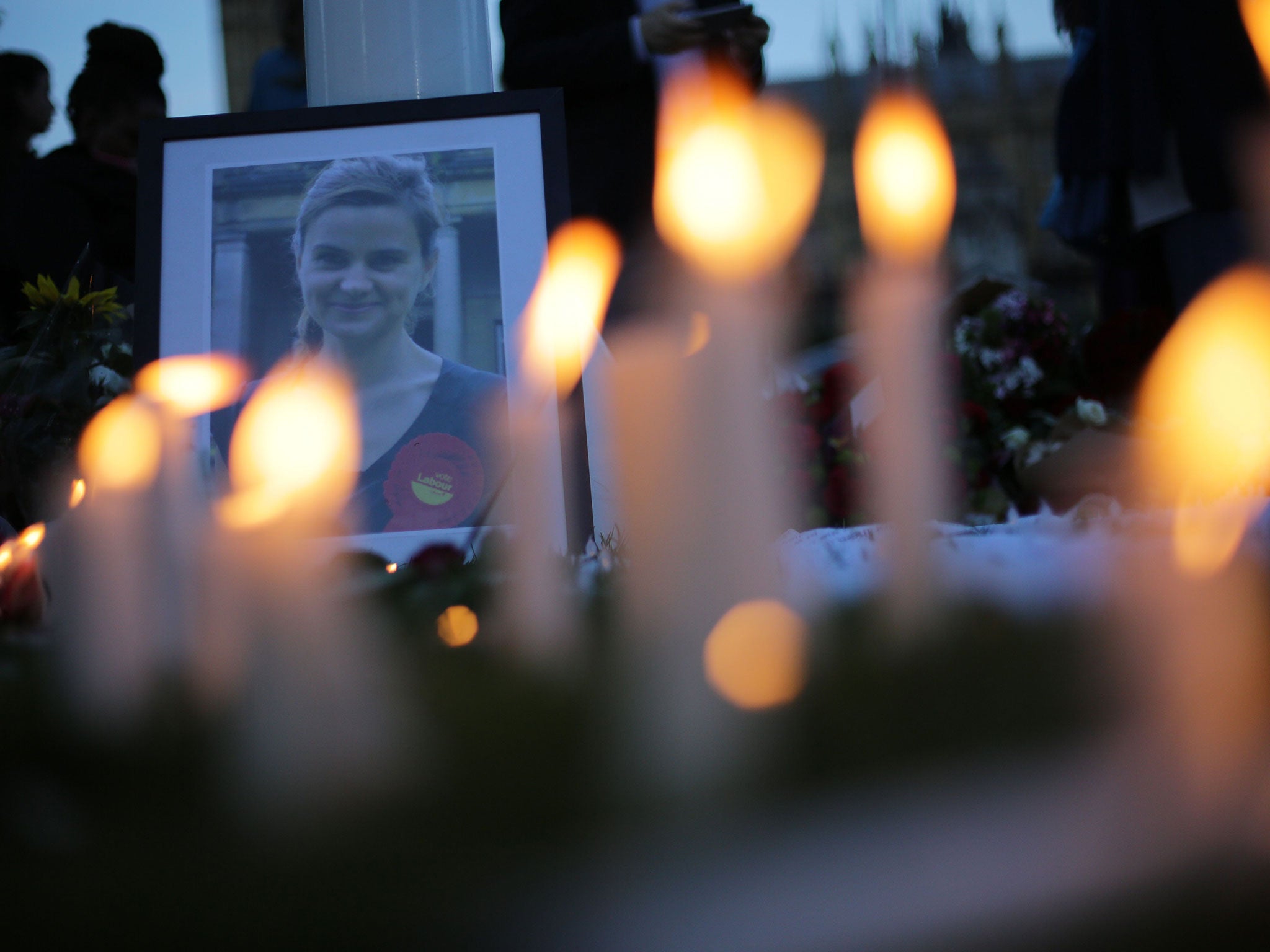The media responded fairly to the murder of Jo Cox, but the unregulated world of social media did not
To say some of the remarks shared by users on The Independent’s Facebook post about Jo Cox are unsympathetic isn’t the half of it. So should we close that window altogether?


Your support helps us to tell the story
From reproductive rights to climate change to Big Tech, The Independent is on the ground when the story is developing. Whether it's investigating the financials of Elon Musk's pro-Trump PAC or producing our latest documentary, 'The A Word', which shines a light on the American women fighting for reproductive rights, we know how important it is to parse out the facts from the messaging.
At such a critical moment in US history, we need reporters on the ground. Your donation allows us to keep sending journalists to speak to both sides of the story.
The Independent is trusted by Americans across the entire political spectrum. And unlike many other quality news outlets, we choose not to lock Americans out of our reporting and analysis with paywalls. We believe quality journalism should be available to everyone, paid for by those who can afford it.
Your support makes all the difference.The killing of Jo Cox last week has knocked people off-kilter. Fellow MPs have broken down in tears; experienced journalists have struggled to find the right words to say; constituents have wept. Many who did not know her have felt her death as an assault on the democratic values which are such a core part of being British.
For Mrs Cox’s husband and children – and the rest of her family and close friends – the degree of media attention is perhaps disconcerting. Few of us, when we lose the ones we love the most, have to deal with such public outpourings of sadness. Our grief is private, unnoticed, unshared. We decide on the tributes that are paid, the things that are said, the prayers that are uttered.
Whatever the Cox family make of the wider response, their own public statements – which have come from Brendan, Jo Cox’s husband – have been both measured and heart-rending. They recognise, perhaps, that the death of a public figure will be publicly marked. And it may be comforting to know how many people felt their lives had been touched by the late MP for Batley & Spen.
But while the Cox family have kept their counsel over the media coverage of last week’s tragedy, others have raised questions about the wall-to-wall news articles, commentary and TV bulletins. Some have claimed that responses to Jo Cox’s death are motivated by political agendas; a few have contended that we do not pay so much attention to other killings.
These claims are largely baseless. The truth is it is incredibly rare – and thus highly newsworthy – for an MP to be killed as they go about their work. The media does not ignore other violent deaths: on the contrary, they are frequently reported on newspaper front pages and at the beginning of television news programmes. That Jo Cox’s death has garnered more headlines than some is a legitimate reflection of the extent to which she was known in public life, the specific circumstances of her killing, and the concerns it raises with regard to interactions between Members of Parliament (and other public servants) and the people they represent.
Moreover, to reflect on her professional interests and achievements is not an attempt to score political points as the EU referendum approaches. It is arguably those who suggest otherwise (often aggressively) who are most obviously open to such a charge. Indeed, while the majority of responses to Jo Cox’s death have been overwhelmingly positive, there is a notable undercurrent of antipathy when it comes to social media.
On The Independent’s website, reader comments are generally not permitted on stories which report an alleged crime. As such, we have not provided a direct platform for those who like to have their say ‘below the line’. On Facebook, it is a different matter – which is one reason why very few pieces about Jo Cox have been posted there. Yet given even the smallest window of opportunity, internet trolls are quick to crawl through – to say some of the remarks shared by users on The Independent’s Facebook page are unsympathetic isn’t the half of it. So should we close that window altogether? It is tempting, although it might equally seem strange if none of our reports about the major news story of the day appeared on social media feeds.
Whatever the answer, one thing is grimly clear from internet comments. While there are plenty of people out there who share Jo Cox’s compassionate view of the world, there are also a few who most definitely and defiantly do not. In her maiden speech, she expressed delight at having found local communities in her constituency “are far more united and have far more in common with each other than things that divide us”. I hope to goodness Jo Cox is right. By Friday we may have some idea.
Join our commenting forum
Join thought-provoking conversations, follow other Independent readers and see their replies
Comments